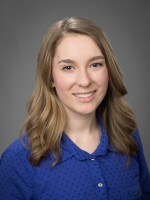This fall, the nation honored the 20th anniversary of the 9/11 attacks.
On the anniversary, two Reno residents who had never met before joined each other for a unique video call. Their discussion was part of One Small Step, a program to connect people who have different political values through dialogue.
Don Harner is a local correctional officer who says he believes in small government and sensible restrictions. His conversation partner was Amy Akao, who recently started an Asian American and Pacific Islander outreach committee for the Washoe County Democratic Party. Together, they remembered what it was like to hear the news that the twin towers had fallen.
Amy Akao: So Don, my question about today that I wanted to ask you was, do you remember where you were or how you found out about 9/11?
Don Harner: I do. I was working state corrections for juveniles. I was getting ready for work and seeing it on the TV. You know, I still can’t believe it. It’s just absolutely such a shocking thing to witness.
Amy: Yeah, I remember I was in college. I went to [European history] class that day. I remember my teacher saying, ‘We’ll just talk about the history that’s unfolding.’ I was so scared. Every year for the last 20 years, on this day, I still remember that feeling.
Don: We were all feeling vulnerable and wondering what happened and who was at fault. I imagine that’s got to touch home, you know, with your ancestry, the same way folks were feeling after Pearl Harbor. America reacted with, ‘Let’s intern the Japanese.’ We get to look back at it and go, ‘Well, that was bad.’ But at the time, how prevalent was that fear and that quick to jump to conclusions?
Amy: It’s funny that you say that about Pearl Harbor because I said that. I was like, ‘this must be how people felt.’ My Dad, he spent his childhood in the internment camp. You know, he was, like, five. He had no idea what was happening, just that they had to leave the farm in California. But that’s not something that my family really talked about, or my dad never wanted to talk about it. My grandpa, he loved talking about it. He looked at five-year-old or six-year-old Amy and was like, ‘Oh you know, I have to tell you everything.’ Of course, he also thought I could speak Japanese, and I used to tell him, ‘Grandpa, I do not understand Japanese.’ He would say, ‘Oh sure you do.’ I just thought it was kind of interesting how the older generation wanted to talk about it, but then my dad’s generation, the younger generation, didn’t want to talk about it at all.
Don: That certainly makes sense. I think the talking about it is good ‘cause I don’t think it’s anything we should ever forget. Almost like today, my youngest daughter doesn’t remember the events of 9/11 and the towers coming down. My oldest, she was pretty young, so there’s a vague recollection. We would talk about it, but the next generation won’t. I mean, it doesn’t mean anything to my youngest daughter. It may as well be Watergate or the Kennedy assassination or, you know, one of these things that our parents talked about. I hope young people learn what a profound impact that was, you know, the towers coming down and how that affected America.
This conversation was produced by KUNR reporter Natalie Van Hoozer. The audio was transcribed by Kate Rye. This transcript has been lightly edited for clarity.
KUNR and Noticiero Móvil are working with StoryCorps on One Small Step, a program made possible in part by the Corporation for Public Broadcasting, a private corporation funded by the American people. Nevada Humanities is a key community partner for this program.
If you'd like to participate in a conversation in either English or Spanish, you can sign up here.







